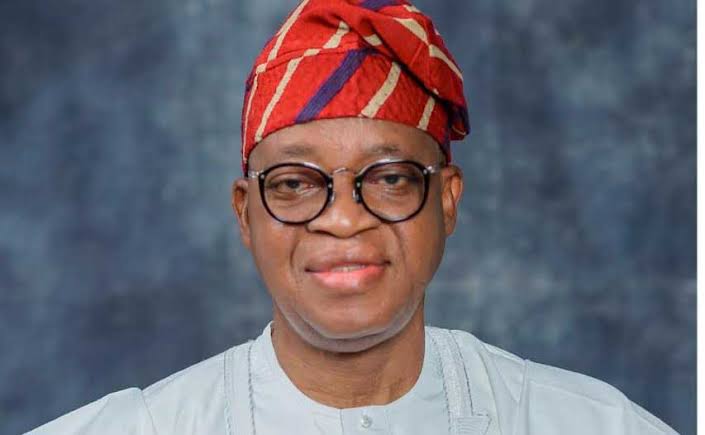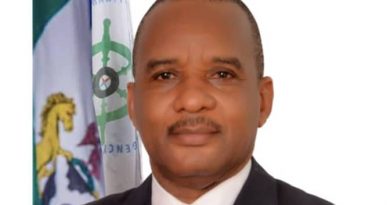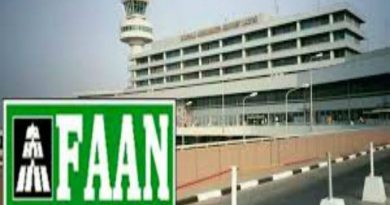$1 Billion Investment Required For Rehabilitation Of Nigerian Ports- Oyetola
Maryam Aminu
Years after the concession of the Nigerian port systems to private investors, there has been some tremendous improvement in port operations as evidenced in the high level of efficiency in the ports
No doubt, the reform repositioned Nigerian ports for competitiveness and efficiency to compete favourably with its peers in Africa and globally.
The government of Nigeria has not achieved the maximum benefits to be derived from the port concession due to inability to improve the port infrastructure to the desired standard for efficient operation, most of which have or are approaching the end of their life span.
Aiming to improve on this, the federal government has revealed that it has proposed a $1 billion investment for the rehabilitation of the nation’s ports
The Minister of Marine and Blue Economy, Gboyega Oyetola, who was represented by the Permanent Secretary, Oloruntola Michael, made this disclosure on Thursday when he appeared before the House of Representatives Committee on Privatisation in Abuja.
He expressed that the dream to achieve a modernized port is paramount and sacrosanct.
“The Concession Agreement to be entered into with any Investor or Operator must align with this vision. In this regard, NPA has committed to the process and is expected to actualise this vision.” He said
“The investment required to achieve this is estimated in excess of US$1billion. It is therefore expedient to ensure that any step to be taken is fitted within the long-term re-investment plan.
He assured that during the course of rehabilitation the ports, will not be completely shut down
The Minister recalled that the federal government embarked on Port reforms in 2005/2006 in order to enhance operational efficiency, improve productivity and revenue accrual to government, attract investment to the port sector and technology transfer, among others.
Under the modernisation programme of the Port, the Ministry is envisioning a major reinvestment in the port system to meet expected service delivery.
He added: “The investment required to achieve this is estimated in excess of US$1billion. It is therefore expedient to ensure that any step to be taken is fitted within the long-term re-investment plan.
“The dream to achieve a modernized port is paramount and sacrosanct. The Concession Agreement to be entered into with any Investor or Operator must align with this vision. In this regard, NPA has committed to the process and is expected to actualise this vision.
“The agency’s review/exercise will determine the approximate value of investment to be made for the Ports and corresponding tenor to be granted to Investor/Operator.
Oyetola recalled that the federal government embarked on Port reforms in 2005/2006 in order to enhance operational efficiency, improve productivity and revenue accrual to government, attract investment to the port sector and technology transfer, among others.
He noted that the reform resulted in the delineation of the six port complexes in Lagos, Port Harcourt, Calabar, Onne and Warri into 26 terminals and transfer of cargo operations, which was hitherto performed by the Nigerian Ports Authority (NPA) to the Terminal Operators that emerged through competitive bidding process.
The minister explained that this culminated in the Lease Agreements signed between NPA (Lessor) and Private Terminal Operators (Lessee) with the Bureau of Public Enterprises as the Confirming party for a specified period ranging between 10-25 years.
He said ‘The Landlord Model’ was adopted where the lands for port development and related activities within areas declared as ports are owned and administered by NPA with responsibilities also assigned to the private operators.
Oyetola noted that the five expired leases were initially granted a ten year concession at Apapa, Tincan Island and Delta Ports.
He said that extensions of five years were however granted to compensate the Terminal Operators in accordance with Section 25 of the Port Act due to budgetary constraints and the NPA’s inability to discharge some of its obligations as stipulated in the lease agreements.
He pointed out that other challenges included; inability of NPA to meet the advertised depth for vessel reception, changes in government policies, encumbrances of lease property, insecurity on the waterways and collapsed access roads to the ports, among others.
“The current situation at the port does not meet the required standard. The investment quantum that is expected to be invested in the port will require a major rethink of the concession of the ports.”
“As a result of that, the Ministry, in concert with the agency, the NPA in particular has begun a process of reinvestment package for the port,” Oyetola said.
Mr Ignatius Ayewoh, acting Director-General, Bureau for Public Enterprise, said that the government reinvestment plan should stop the renewal process of the concession exercise.
“I want to say that BPE was involved completely in this concessions arrangement and till date, monitoring has been taking place and some of the status report as per performance will be provided for record purpose.”
Reacting Chairman, House Committee on Privatisation and Commercialisation, Hon. Ibrahim Chidari, said the Ministry must put measures in place to ensure that the government does not have to lose any revenue.
“After the expiration of the agreement in 2021, the terminal operators were given a six-month extension twice and after that, there had been no extension.
“We don’t want them to continue to operate illegally because there must be no vacuum,” he added.




